Farmer FIRST Programme (FFP)
Farmer First Programme (FFP) aims to involve farmers participating research problem identification, prioritization and to conduct experiments in farmers field utilizing the resources available with the farmers. This programme was implemented with the collaboration of four ICAR institutes (IIMR, IIOPR, IIOR and CRIDA) and one University (TANUVAS, Chennai) under ATARI, Hyderabad. Focus of this project is on farmer's Farm, Innovations, Resources, Science and Technology (FIRST). The project is undertaken covering four major components viz., a. Enhancing Farmer Scientist Interface, b. Technology Assemblage, Application and Feedback c. Partnership and Institution Building and d. Content Mobilization.
Enhancing Farmer-Scientist Interface
FFP centres organized 233 programmes involving 17,612 farmers to enhance Farmer-Scientist Interface, which include trainings programmes, awareness campaigns, exposure visits, animal health camps, field days, interface meetings, and other extension activities. These interface meetings enhanced farmer scientist interaction, disseminate knowledge on improved agricultural practices, and address key challenges faced by farmers. These helped the scientists to understand the practical problems of the farmers and provided scope to select and alter technologies to suit the conditions of farmers. During these interactions, scientists identified farm innovators and groom them as technology agents for farmer-to-farmer technology dissemination, up-scaling and out scaling
Technology Assemblage, Application and Feedback
The Farmer FIRST centers undertook 94 interventions covering 947.7 ha area and 3154 households in the operational villages. Thirty-five crop-based technologies were demonstrated in 687.2 ha. Horticultural interventions on 7 technologies were demonstrated in 5.7 ha. In the livestock module, 25 technologies were demonstrated involving 1142 farm families. Twenty NRM technologies were demonstrated in 231.7 ha. Three enterprises were established for the benefit of 223 households. Four drudgery reduction technologies were demonstrated benefiting 127 households. Some of the successful technologies demonstrated by the centers were discussed below.
The ICAR-IIOPR Farmer FIRST Programme revolutionized oil palm-based farming systems by integrating smart irrigation, precision fertigation, and biological pest and disease control across 1363 ha, achieving up to 94.4% disease suppression and 100% pest reduction. Weather-based irrigation and fertigation saved over 50% of water and inputs, generating additional profits up to 3.31 lakh/ha. Pole harvesting innovation halved labour time, enabling the harvesters to earn and annual incomes up to 2 lakh. Intercropping with cocoa, bush pepper, and turmeric nearly doubled farm incomes, while biomass recycling boosted soil organic carbon by 168.7%, reducing fertilizer use and enhancing sustainability. Integrated fish farming in unused ponds yielded 2.53 lakh/ha, proving the power of holistic, resource-efficient farming models driven by IIOPR's cutting-edge field interventions.
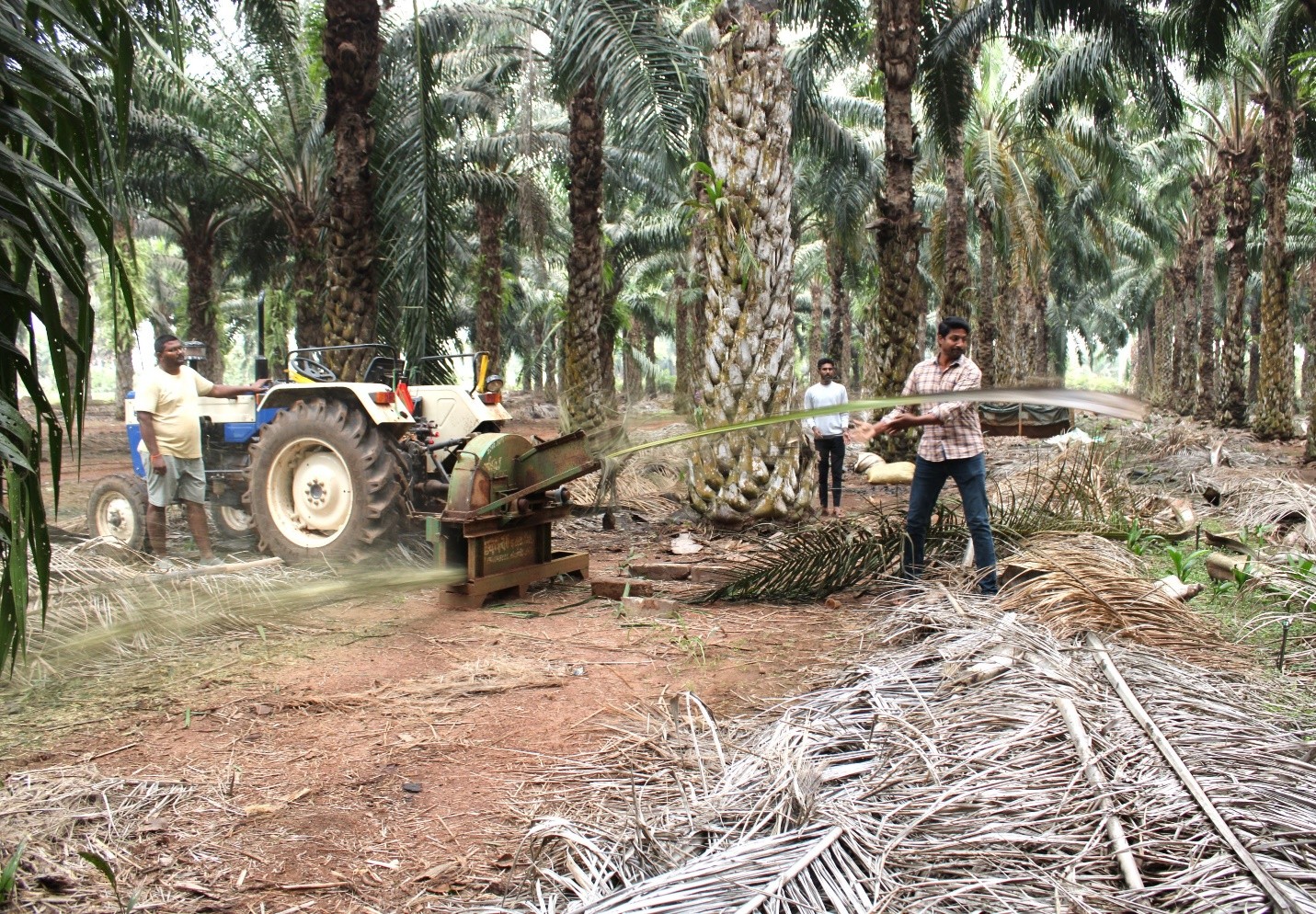
Demonstration on recycling of oil palm biomass by Chaff cutter.
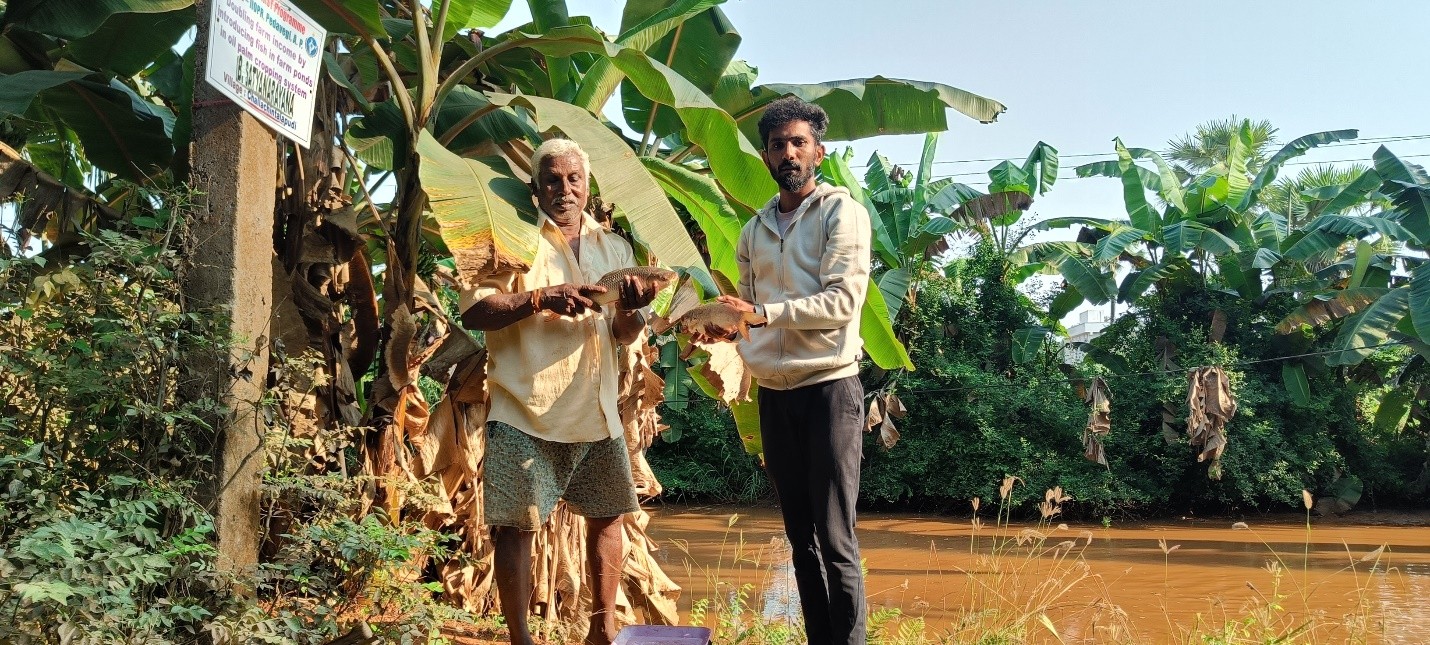
Sri. B. Satyanayana successfully raised fishes in farm pond at oil plam based cropping system.
ICAR-IIMR demonstrated high-yielding cultivars of millets and red gram in 116.57 ha, achieving up to 66% higher yields and substantial income gains for rainfed farmers of Telangana. These varieties exhibited resilience to climate stress, pest resistance, and superior marketability. Intercropping millets with red gram significantly enhanced profitability and sustainability. Livestock interventions with Nellore sheep and Vanaraja poultry ensured steady income for SHGs and landless families. Enterprise modules like roti-making units empowered rural women with 30,070/month income, while kitchen gardens improved household nutrition and saved expenses. Line sowing and strategic R and D partnerships further strengthened technology adoption, demonstrating a replicable model for inclusive and climate-resilient agriculture.
ICAR-CRIDA, through targeted capacity-building programs and multi-sectoral interventions in NRM, crops, horticulture, and livestock empowered about 1200 farmers. A farm innovator's low-cost safflower cultivation method without tillage gained local adoption, conserving soil moisture and reducing costs. Community check dam renovation in Gangupally village extended irrigation for 30 acres, while green manure (Daincha) trials improved rice yields by 15-20%. High-yielding redgram and safflower varieties, along with nano urea demonstrations, led to improved productivity and nutrient efficiency. Staggered sowing in vegetables and BBF planter demonstrations boosted profitability and mechanization access. Women were economically uplifted through backyard poultry and goat health interventions, showcasing ICAR-CRIDA's holistic approach to sustainable rural development.

Renovation of Check dam
The ICAR-IIOR, Farmer FIRST Programme transformed 491 ha across four villages, benefiting 2,048 households through integrated NRM, crop diversification, and sustainable practices. Redgram, groundnut, sorghum, and green gram interventions achieved yield increases up to 24%, with net returns up to Rs. 94,286/ha. Groundnut-green gram rotations secured 82,205/ha system returns for tribal farmers. Paddy cultivars KNM 118 and MTU 1010 gave 59 q/ha yield boosting incomes significantly. Livelihood diversification through sheep units, value addition and tur dhal processing enhanced profitability by 7,162/q. Strategic FPO enrolment, market linkages, and partnerships further empowered farmers with institutional and financial resilience.
TANUVAS, empowered 273 farmers with their diverse capacity-building activities, mechanization support, and sustainable agriculture interventions. Improved paddy variety Co 55 led to a yield gain of 312 kg/acre and cost savings of 6,388/acre, with 33% adoption in target villages. Distribution of 1,862 backyard poultry chicks and alternate poultry strains like turkey, quail, and guinea fowl enhanced nutrition and women's income. Bio-input demonstrations, soil and water testing, and INM practices fostered eco-friendly farming across 85.2 ha. Improved goat and dairy breeds raised income and productivity, while vermicomposting and water-saving micro-irrigation empowered farmers with sustainable livelihoods. Intercropping, crop diversification, and Farmers' Field Schools accelerated innovation adoption and resilience in rural communities.
Content Mobilization
Under the Content Mobilization component, FFP centres actively identified and pooled transferable technologies from various institutions and developed content platforms for offline and online access. ICAR-IIMR developed the Millets FIRST Android app for millet production, processing, and market advisories, accessed by over 98,000 users and supported by WhatsApp and SMS-based advisories. Quality seeds, livestock and poultry management practices, kitchen garden kits, and machines like roti makers and de-hullers were mobilized. ICAR-CRIDA generated soil health cards from farmer field data, published articles, and created knowledge models using institutional recommendations. ICAR-IIOR and other centres disseminated project content through brochures, mass media, farmer meetings, and exchange visits in local languages. TANUVAS facilitated information sharing through WhatsApp (181 members), offline meetings, and farmer-to-farmer exchange. ICAR-IIOPR documented oil palm technologies and created content on irrigation, pest and disease management, cropping systems, and income-enhancing practices like fish farming.
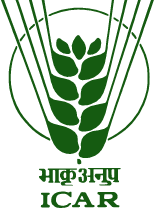
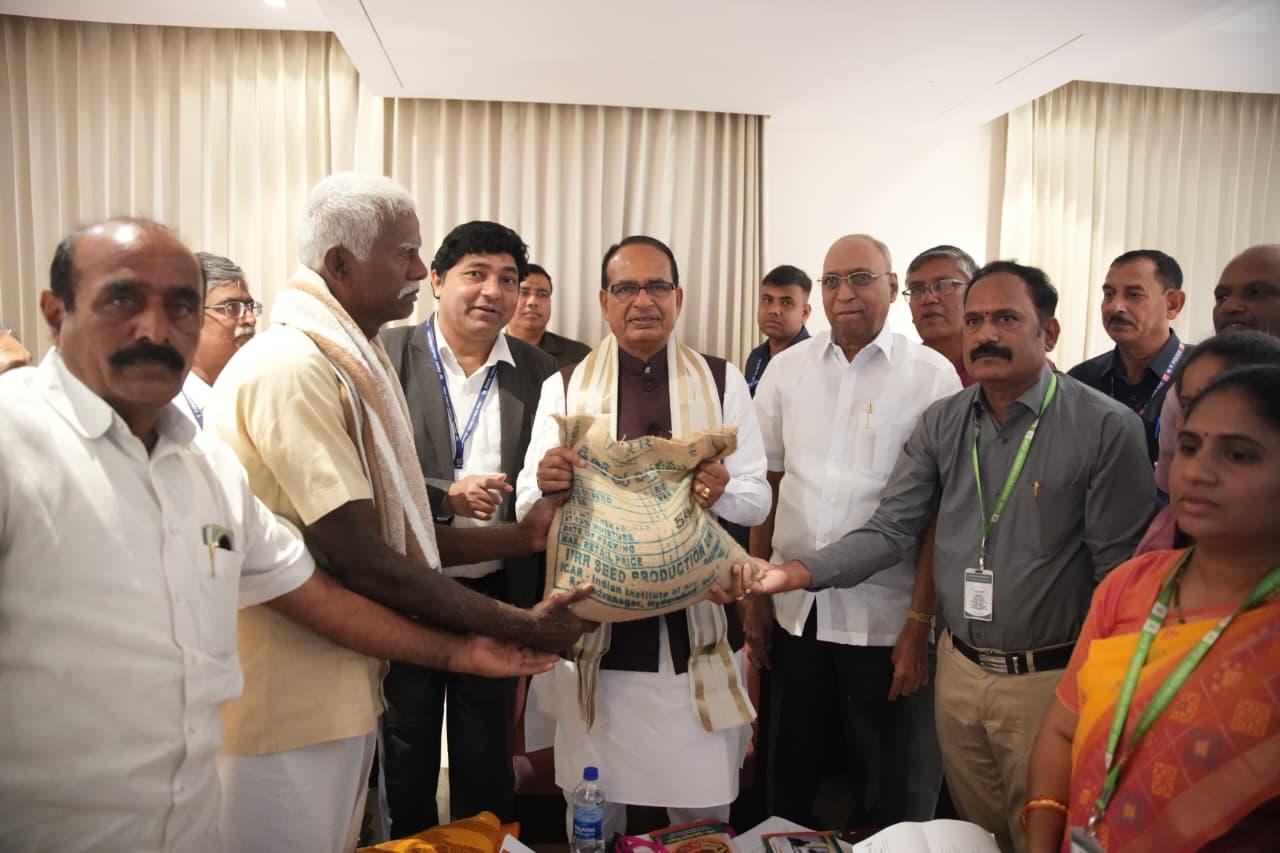
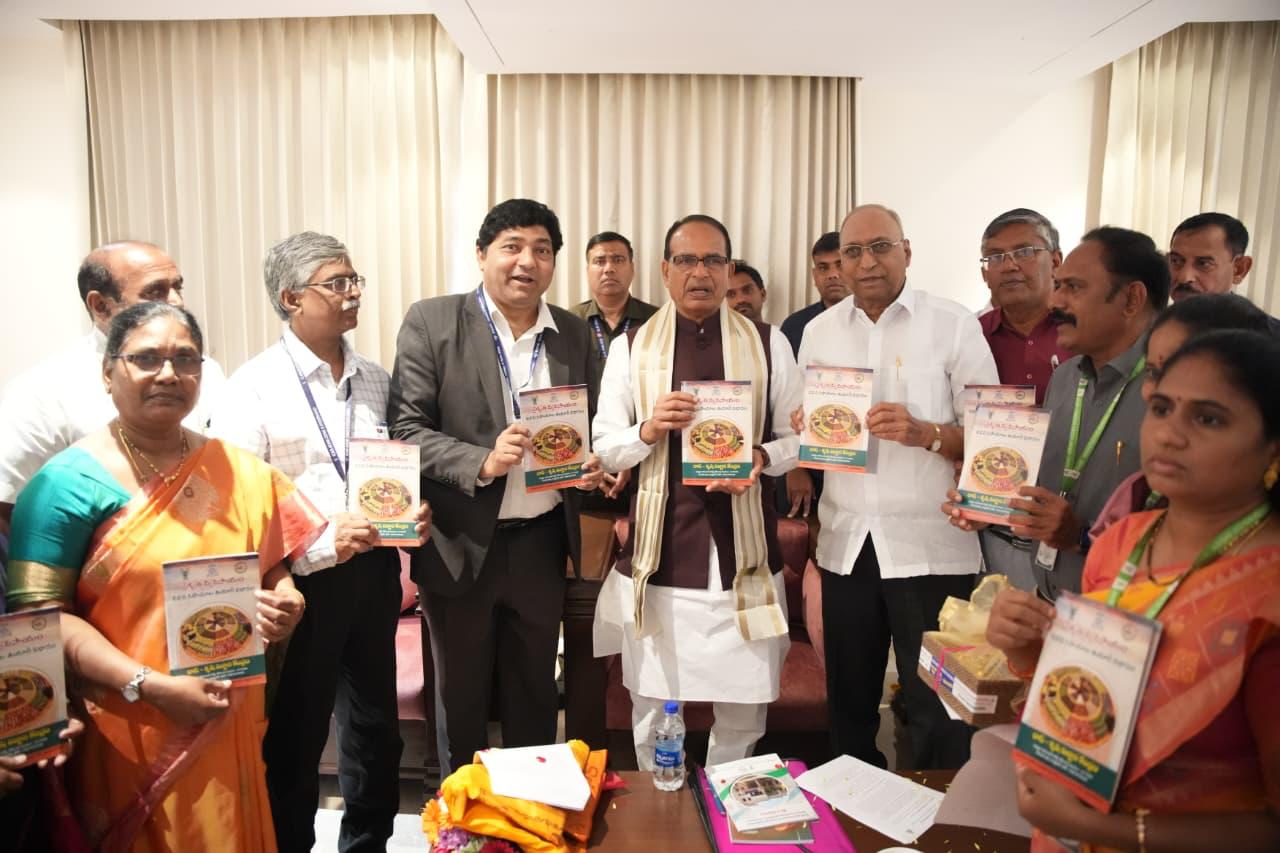
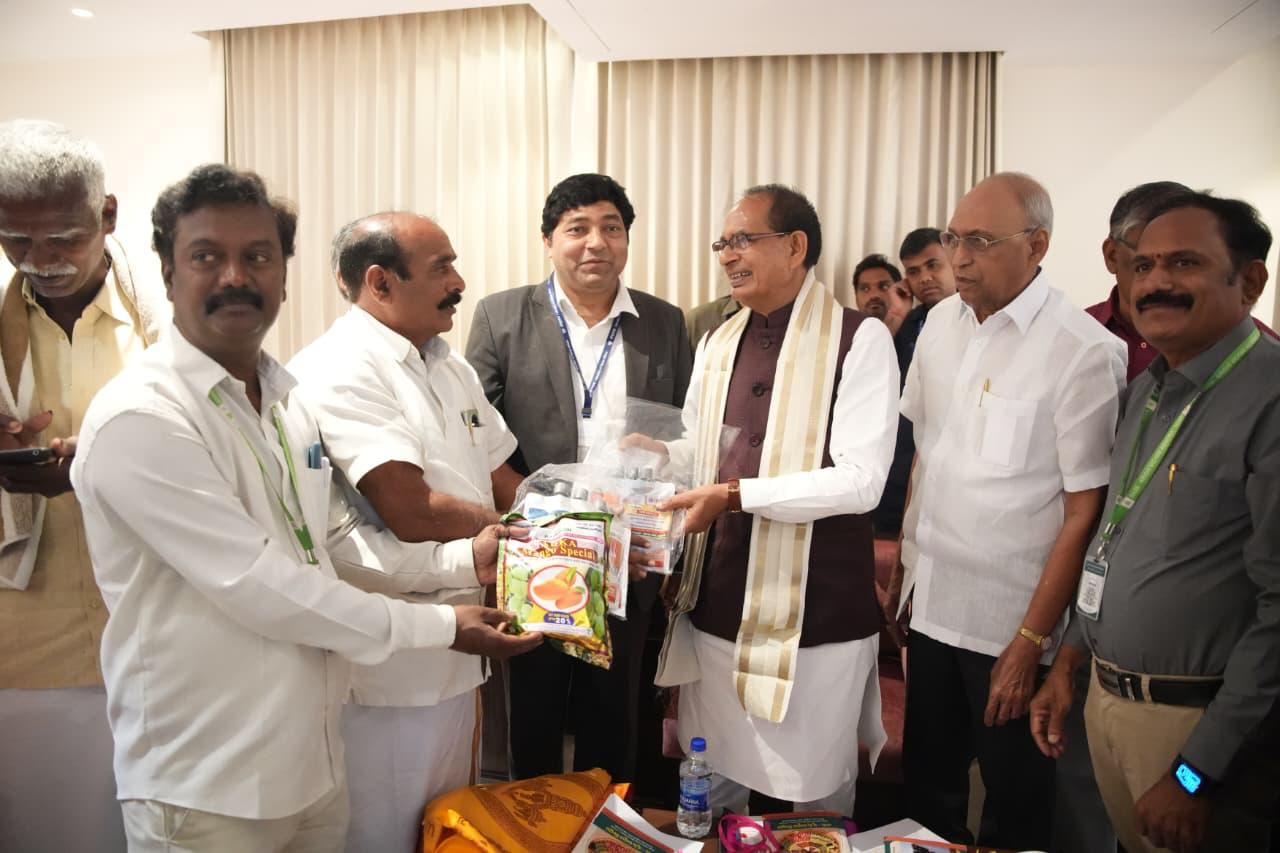
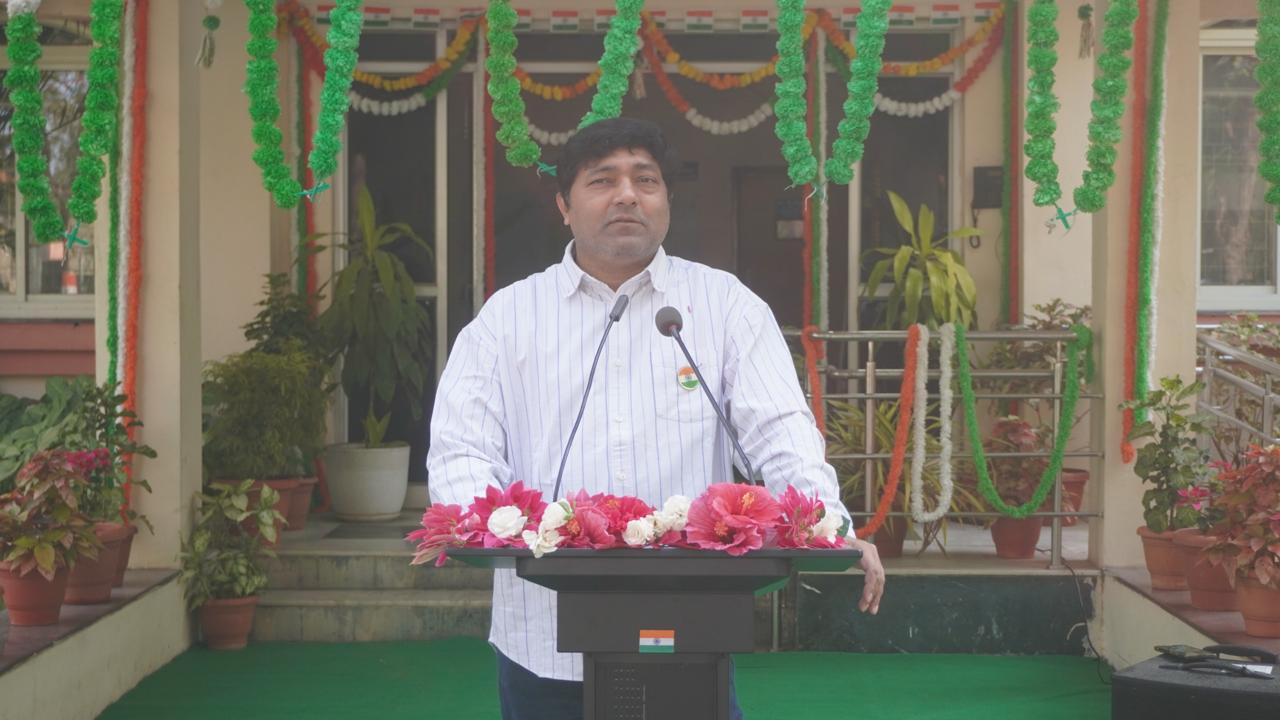
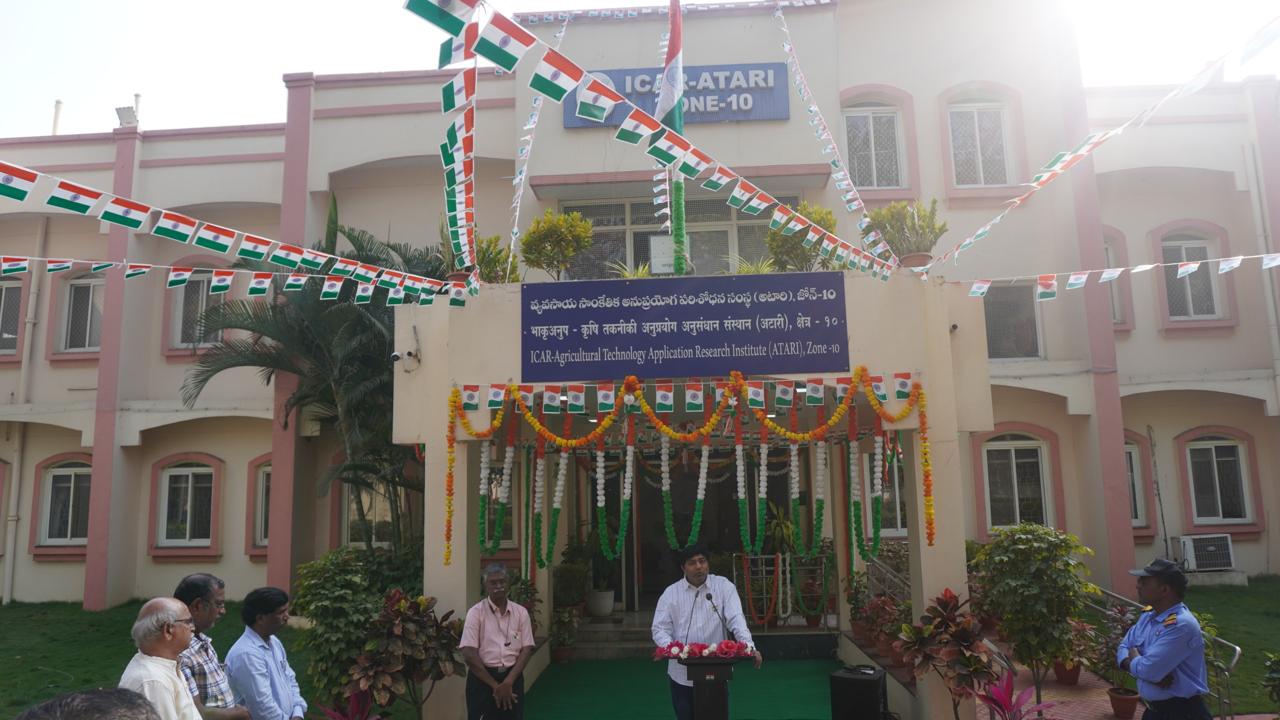
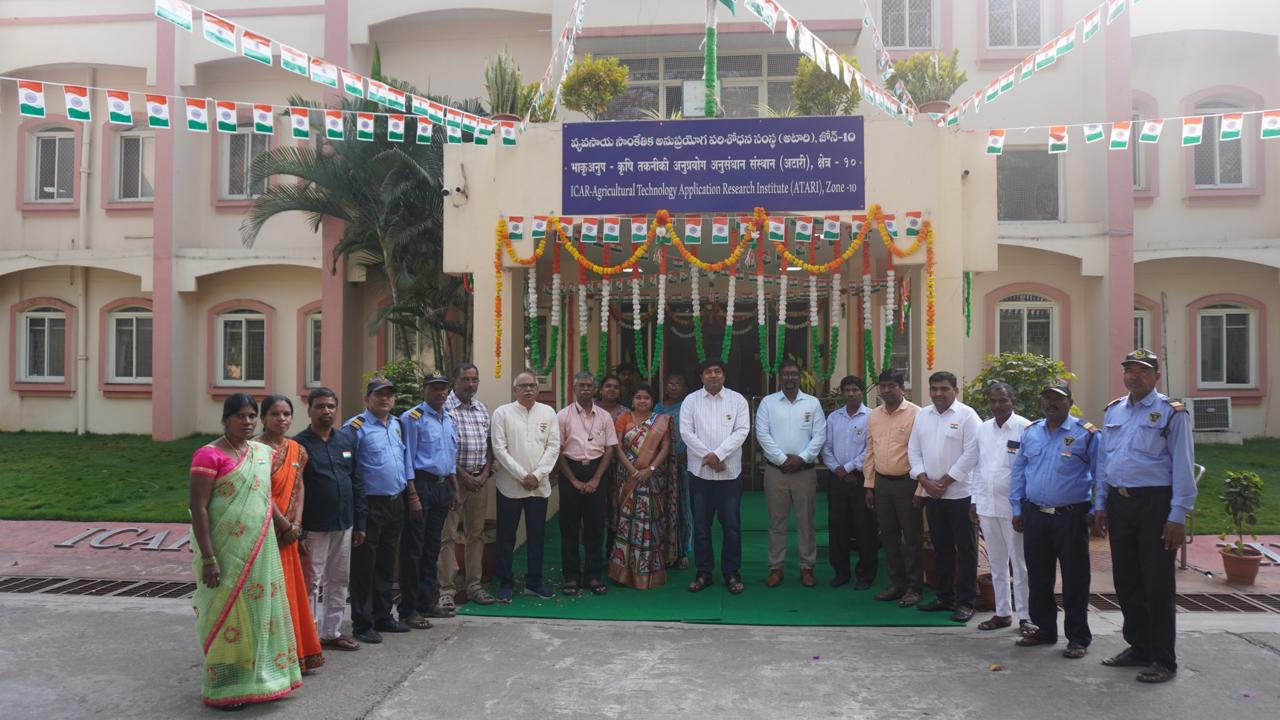
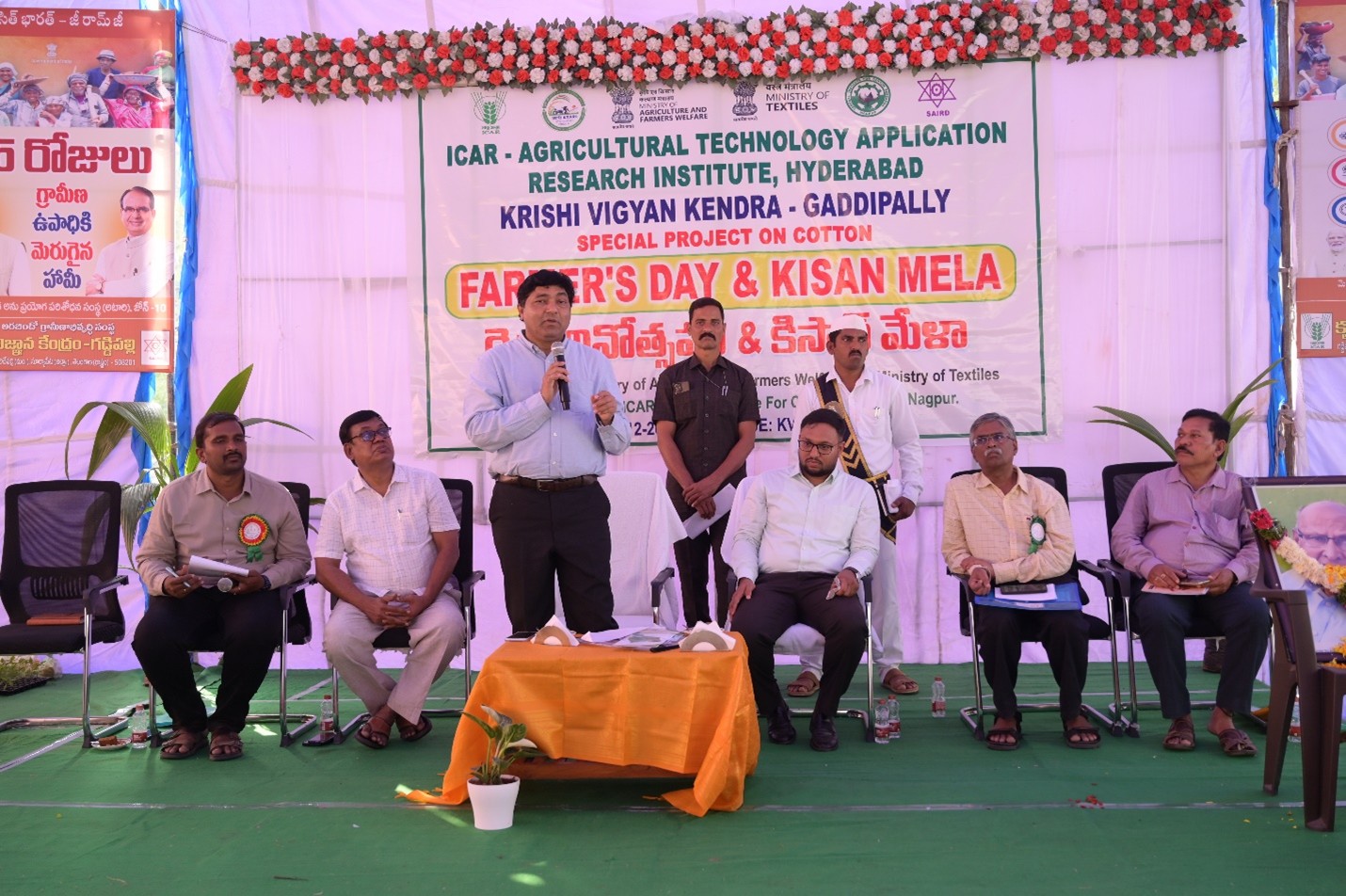
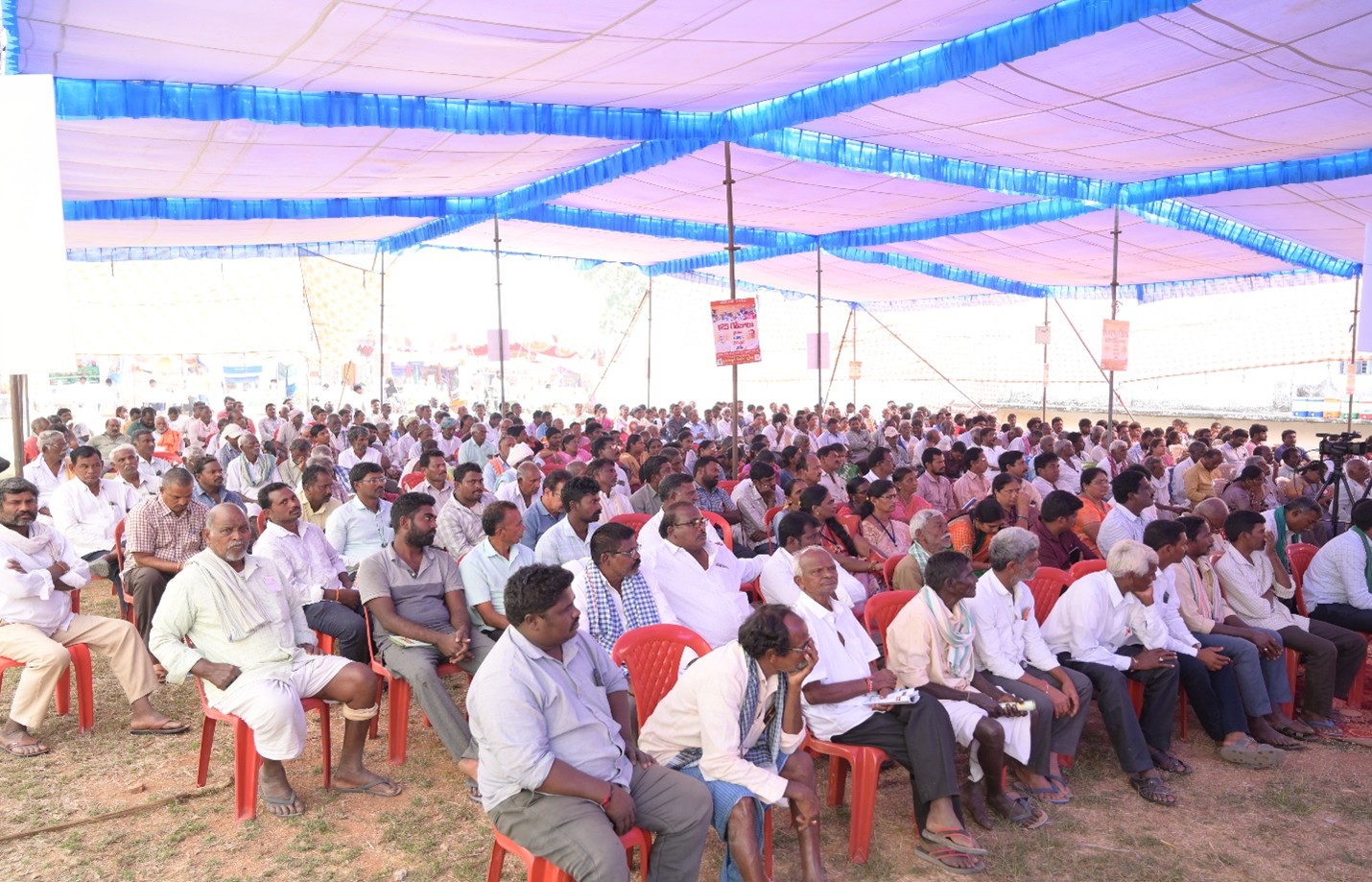
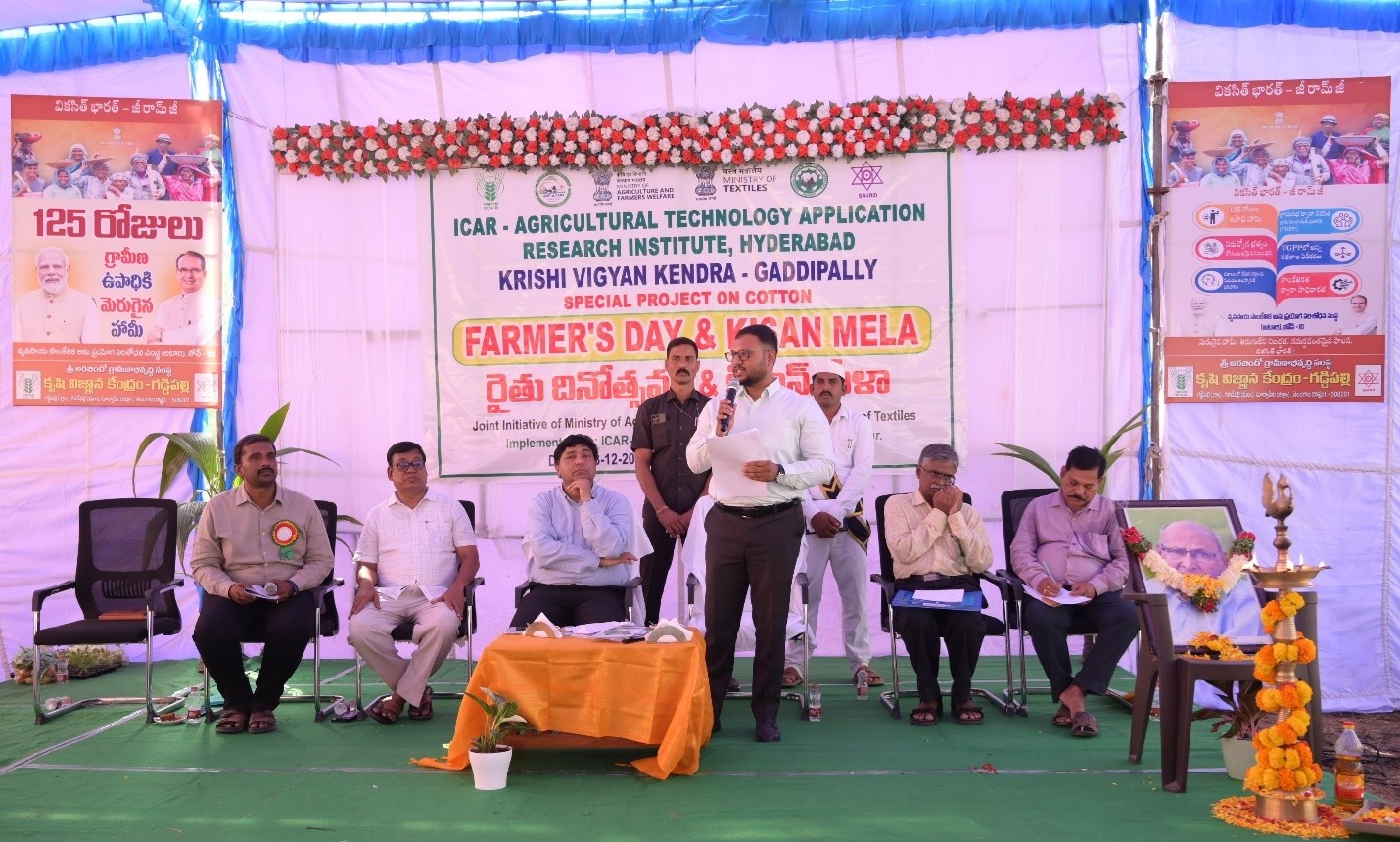
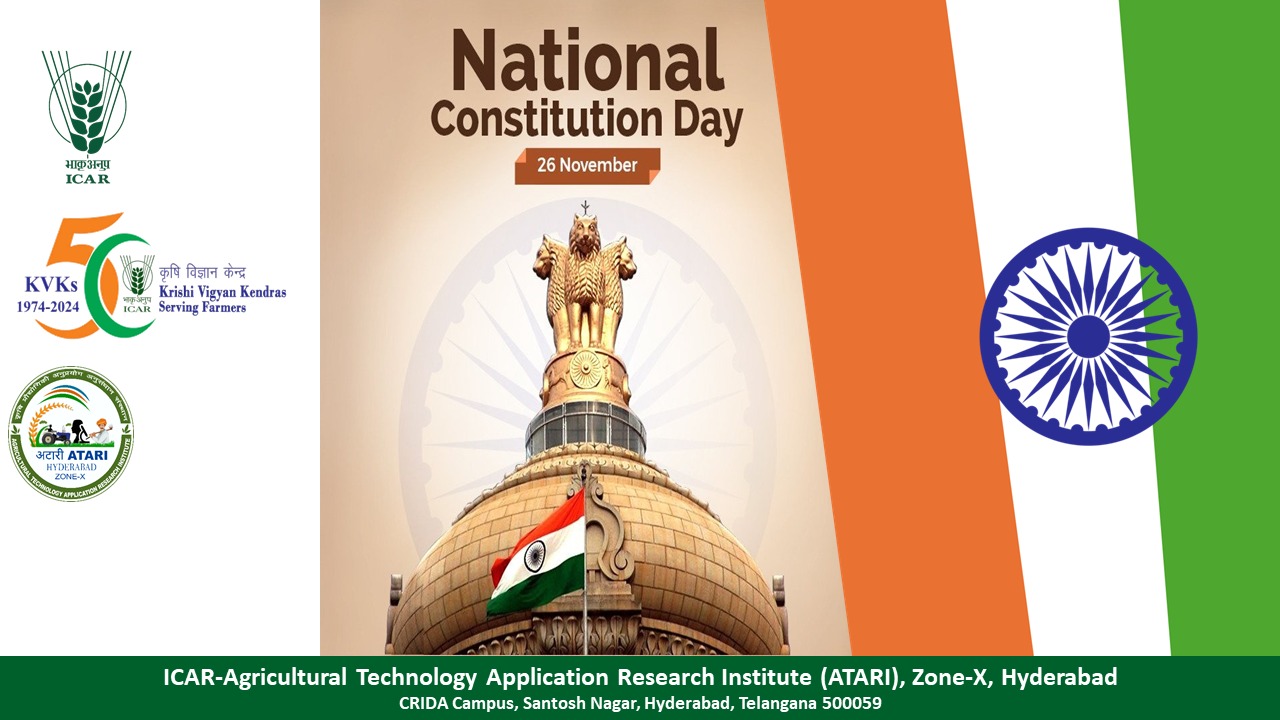
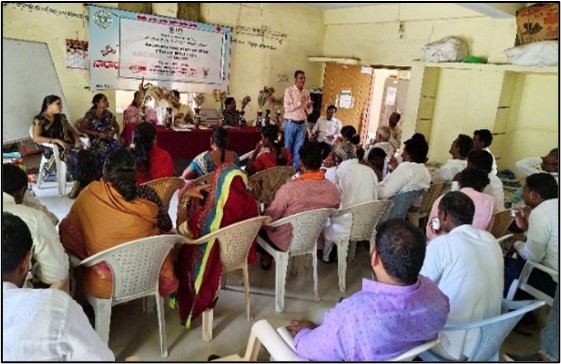 ICAR-IIMR Scientists interacting with farmers
ICAR-IIMR Scientists interacting with farmers
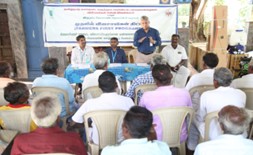 TANUVAS Scientists in interface meeting with farmers
TANUVAS Scientists in interface meeting with farmers
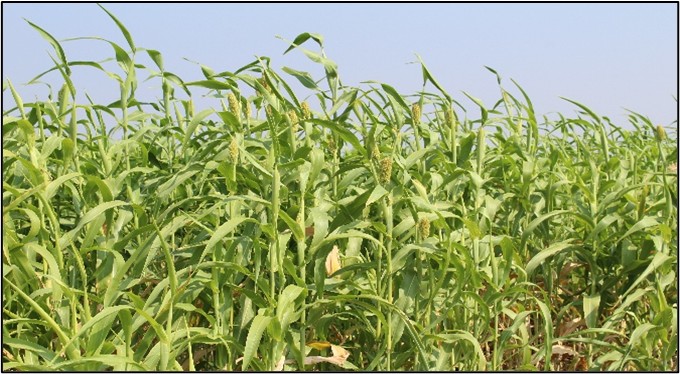 Field view of CSV 36
Field view of CSV 36
.jpg) Foxtail millet variety Mahanandi (SiA 3159)
Foxtail millet variety Mahanandi (SiA 3159)
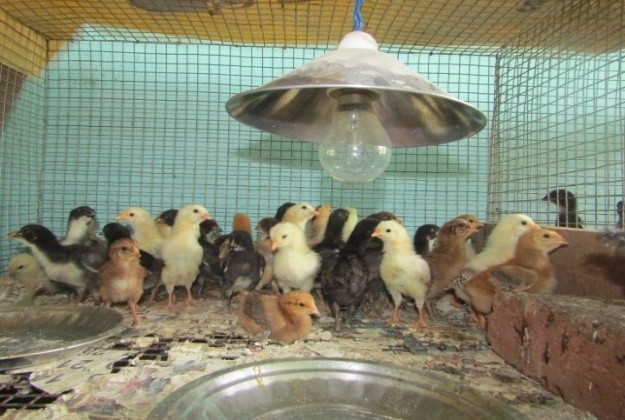 Improved strains of backyard poultry poultry (Aseel, Naked neck, Kadaknath, Siruvidai and , Peruvidai)
Improved strains of backyard poultry poultry (Aseel, Naked neck, Kadaknath, Siruvidai and , Peruvidai)
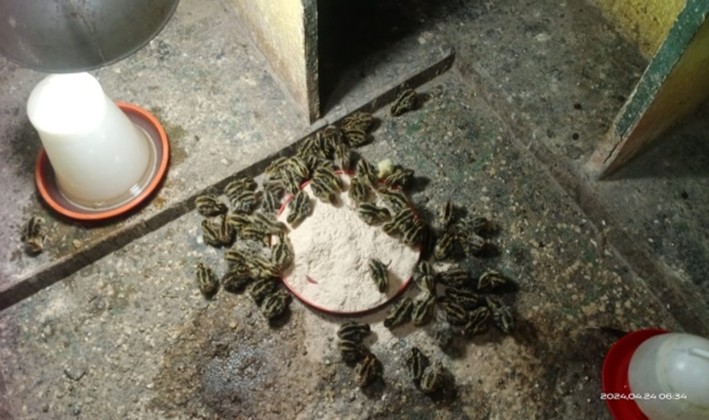 Intervention in Alternate poultry - Turkey, Japanese Quail and Guinea fowl (Non-chicken)
Intervention in Alternate poultry - Turkey, Japanese Quail and Guinea fowl (Non-chicken)
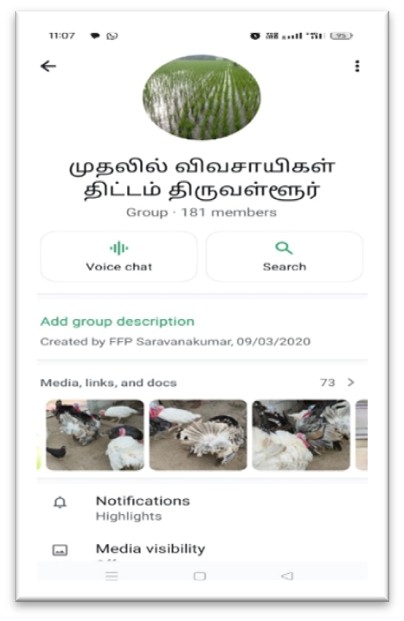 WhatsApp group formed by TANUVAS for content mobilization
WhatsApp group formed by TANUVAS for content mobilization
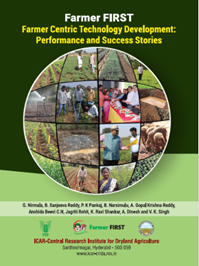 Farmer Centric Technology Development: Performance and success stories:by CRIDA
Farmer Centric Technology Development: Performance and success stories:by CRIDA